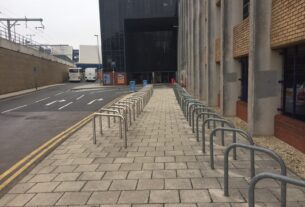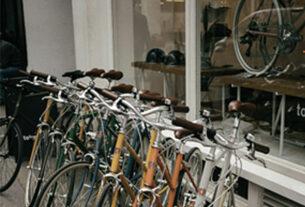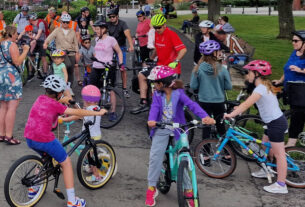Dear RCC members,
I don’t suppose anyone is unaware of climate change any more. We all know the climate is warming, as it has been ever since the ice cap started to retreat at the end of the last ice age. Glaciers extended almost to where Reading is at one time.
The oceans have been steadily rising, the British Isles weren’t islands back then.
However the recent rate of change has been faster than ever before, and it is due to the activities of humans, mostly since the start of the industrial revolution. Now it is accelerating due to the vast amounts of carbon released into the atmosphere, mostly due to the burning of fossil fuels, but there are a few other sources of ‘greenhouse gases’ which are causing the warming.
The scientific consensus is alarming, to put it mildly. If we don’t do something now we’ll be too late to stop some of the ‘feedback loops’ where the result of the warming will cause things we can’t control.
For example if the tundra, that landscape found in the frozen belt of land around the globe north of the arctic circle, starts melting, it releases methane. This causes climate warming, so even if we stopped all our own carbon emissions immediately, once the methane is out of control we can’t stop it.
So we need to rapidly decarbonise our lifestyles right away.
Are we able to do this?
Well, yes we can. Of course we can.
But we won’t.
We won’t because there is a lot to lose, mostly money. Our lifestyles have to change dramatically. Everything we do has to change. We have to do so many things and there is nowhere near enough momentum towards doing anything at all.
In fact there is a huge industry lobbying the government to stop doing anything about climate change. £250million has been spent by five companies in under 10 years to persuade the government to take no action, or even to take action which causes us to consume more fossil fuel.
Of course, the other side of the coin lobbying for action to do something is a well organised bunch of volunteers, Extinction Rebellion, and without committed activists we’d be absolutely nowhere, no matter how loud the scientists shout.
In Reading a climate emergency was declared back in February. That acknowledges the problem, but has yet to come up with a plan, let alone any action. In fact despite a fair bit of lobbying, the climate change declaration didn’t even make it onto the Council website until October, eight months after the declaration.
One of the key messages I have heard is that we must communicate the urgency of the problem by every means available.
In November the Council sent a newsletter to every house in Reading. This never even mentioned climate change, or the climate emergency.
When Cllr Page, Deputy Leader of the Council, and the Lead Councillor for Strategic Environment Planning and Transport, said at the time of the declaration of the emergency: “This declaration will be the golden thread which runs through everything the Council does.”
I genuinely had high hopes we were about to see a complete change in Council policies.
The first big action, to ‘have a meeting’ to come up with solutions, wasn’t until June, four months after the emergency was declared, and even then it seemed as if the whole concept of the problem, and the solutions, was a total surprise.
We were talking about the issues in the early 1990s, after the Rio Summit, and back then RBC had at least three people working on it full time. Despite this, CO² has continued to be released into the atmosphere at an accelerating rate.
Now, almost 30 years later, we were filling out ideas on post-it notes. We now have to wait until next year for the launch of a strategy that identifies what to do. All that is new really is the amount of adaptation we are going to need to make. The scientists have a much clearer idea of the implications, and of course the problem is now very much worse.
Even at the recent launch of the ‘adaptation plan’ by Reading CAN, the network established to get Reading ready for the challenges ahead, there wasn’t a plan, just some vague ideas about planting some trees, moving away from low lying land due to flooding, insulating homes against heat and cold. Nothing about coping with the massive migration of the human population from uninhabitable parts of the planet.
What does this have for readers of the Reading Cycle Campaign newsletter?
Well, apart from the fact that climate breakdown will affect everyone, some things are really relevant to us. One is the decarbonisation of our transport means we have to get lots more journeys made by bike.
We have to rearrange our town so that people don’t need to travel countless miles around the town every day lugging their car, their spare empty seats, their unfilled boots, just to move their body from their home to their work.
I really did think after that declaration the Oxford Road would fall quiet as through traffic was prevented. There would be no motor vehicles passing through the town centre. There would be bike racks everywhere.
Painted cycle lanes would be replaced with kerbs to keep cyclists safe. None of this has yet. In fact nothing has happened at all. I know it’s early days, but if this really is an emergency, then we really do need to act.
And we’re not acting, we’re just talking, and putting off doing anything practical to some point in the future. Actually we are hardly talking. The Transport Action Group of the Climate Action Network has met once. The Cycle Forum has met once. The new Clean Air and Safer Transport Forum has met once.
There are tons of things we could do right away.
We need homes that have room for bikes, not cars. We need to take parked cars off the streets and find space for shelters for bikes. We need to prevent cars being driven through our residential streets, but allow cycling and walking.
We need hubs for the delivery of goods from out of town so that small electric cargo bikes can do the last mile delivery, so our streets are not clogged with half empty vans delivering tiny packages containing stuff we’ve bought online.
We have to have networks of safe routes to get to where we need by bike. We have to make the private car the least favourable option, and make the bike, e-bike, scooter, cargo bike and walking the default.
We know this. RBC knows this. Big businesses know this. The government does too.
We need a ton of other things too, as we can’t fully stop burning carbon right away, so we need to offset this, with thousands if not millions of trees, with vast areas given over to tree growing and wetlands and other natural carbon stores.
But getting a lot of people cycling is one area we really could focus. Despite this the last ‘big meeting’ to discuss making infra-structure for cyclists came up with a few ideas.
One I really like was to make all the arterial routes proper high quality connected cycle highways. Then after the meeting the maps came out and the high quality connected routes all had one glaring omission, the town centre.
So the suggestion that people could cycle down the Oxford Road and straight through to Reading College has been watered down. I don’t know the reason yet, but it’s probably Broad Street.
The route from Reading across town to Caversham has got another gap, probably the station underpass. Even while the plan is on paper it has been diluted. I can only begin to imagine the compromises that will be foisted on us as the plans go from Council reports to physical infrastructure.
We know we need to make proper segregated cycle facilities on all the arterial routes into and out of town. We’ve had painted cycle lanes and proved they don’t work. London and countless cities worldwide have proved that making properly safe roads can make a huge difference as people feel safe, and if they are direct, unobstructed and convenient, they’ll work.
We need separate space for pedestrians and cyclists, not the ridiculous shared-use nonsense we have at the moment. I really hope we’re going to get this, but I have my doubts.
But then in Reading we won’t be too badly affected. We have the money to offset most of the ill effects. So what if a few thousand people die prematurely every year? So what if parts of Reading flood a bit.
We’ll suffer none of the catastrophes of arid countries where a population has to completely abandon its land, or low lying regions disappear beneath the waves. No polar bears will go extinct, perhaps only our nightingales.
So long as we can drive into town to fill our cars with Black Friday bargains, and we can sit alone in our electric cars every day.
The latest target is “doubling the number of people cycling into Reading Town Centre from 4% to 8% by 2030, and to 10% by 2036”. We have 12 years and this is the best we can imagine?
Some emergency!
Adrian Lawson
RCC Chairman




From Marc Edwards, RRSG volunteer on sick leave!
Hi Adrian,
Not having a phone number or email address for you, I hope this reaches you before too long…
As a result of my Lymphoma-induced leisure time, Carole (Mrs E) and I have been using the opportunity to reflect and rationalise a lifetime’s clutter and objects unlikely to be used again. Among these things are a couple of half-decent, under-used bikes: I have photographs, but need an email for you to share them with. One is a Dawes ladies’ bike, the other (reputable make badge removed by previous owner) a man’s hybrid machine, mid-sized frame.
I’m thinking aloud about what to do with them – donate to a deserving cause or sell them in order to soften the blow of purchasing a couple of Bromptons that we two might actually feel more confident on, maybe to chuck in the car more often to get us onto quiet canal-side paths, etc!
I hope you and all at RRSG are very well; I’m very much missing both the two weekly drop-in sessions and the ESOL teaching I was increasingly heavily involved with with New Directions at Central Library. All my weekly commitments will be on hold until May, according to my Lymphoma treament plan…I’m on a ‘quarantine’ programme while Haematology team knock my immune system down to zero (and hopefully back again!).
Looking forward to a word as soon as you have a moment.
Best wishes,
Marc